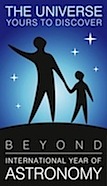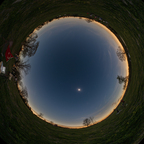MiraCosta has five different astronomy courses. A given term may have only some of the courses to offer so for current listings, please be sure to check the official Catalog & Course Schedule.
Click on a course to expand it's description:
Click on a course to expand it's description:
ASTR 101: Descriptive Astronomy
Units: 3
Prerequisites: None
Enrollment Limitation: Not open to students with credit in ASTR 201.
Acceptable for Credit: CSU, UC Credit limitation
Lecture 3 hours.
This is an introductory course surveying a broad range of topics in astronomy while emphasizing the nature and process of physical science. Studies include the nature of electromagnetic radiation, spectroscopy, optics and telescopes, historical perspectives on modeling the solar system and universe, motions of the night sky and the earth-moon-sun system, terrestrial and Jovian planets, stars, nebulae, galaxies, and cosmology, including formation scenarios, evolutionary processes, and life cycles.
UC CREDIT LIMITATION: Credit for ASTR 101 or ASTR 201; no credit for ASTR 201 if taken after ASTR 101.
Prerequisites: None
Enrollment Limitation: Not open to students with credit in ASTR 201.
Acceptable for Credit: CSU, UC Credit limitation
Lecture 3 hours.
This is an introductory course surveying a broad range of topics in astronomy while emphasizing the nature and process of physical science. Studies include the nature of electromagnetic radiation, spectroscopy, optics and telescopes, historical perspectives on modeling the solar system and universe, motions of the night sky and the earth-moon-sun system, terrestrial and Jovian planets, stars, nebulae, galaxies, and cosmology, including formation scenarios, evolutionary processes, and life cycles.
UC CREDIT LIMITATION: Credit for ASTR 101 or ASTR 201; no credit for ASTR 201 if taken after ASTR 101.
ASTR 101L: Descriptive Astronomy Laboratory
Units: 1
Prerequisites: ASTR 101 or ASTR 201.
Corequisite: ASTR 101 or ASTR 201 if prerequisite not met.
Acceptable for Credit: CSU, UC
Laboratory 3 hours.
This course provides a hands-on introduction to the methods and techniques of observational astronomy and data/error analysis. Emphasis is placed on the collection, presentation, and interpretation of basic astronomical observations. Students learn to use a planisphere, read star charts, and operate small telescopes. Through indoor activities and by making naked-eye, binocular, and telescopic observations, students explore such topics as motions of the night sky; seasons; rotation of the earth, sun, and moon; light and optics, spectroscopy, and characteristics of planets, stars, nebulae, and galaxies.
Prerequisites: ASTR 101 or ASTR 201.
Corequisite: ASTR 101 or ASTR 201 if prerequisite not met.
Acceptable for Credit: CSU, UC
Laboratory 3 hours.
This course provides a hands-on introduction to the methods and techniques of observational astronomy and data/error analysis. Emphasis is placed on the collection, presentation, and interpretation of basic astronomical observations. Students learn to use a planisphere, read star charts, and operate small telescopes. Through indoor activities and by making naked-eye, binocular, and telescopic observations, students explore such topics as motions of the night sky; seasons; rotation of the earth, sun, and moon; light and optics, spectroscopy, and characteristics of planets, stars, nebulae, and galaxies.
ASTR 120: Life in the Universe
Units: 3
Prerequisites: None
Acceptable for Credit: CSU, UC
Lecture 3 hours.
A scientific exploration of life in the Universe from the Big Bang to implications of contact with an extraterrestrial civilization. Topics include the formation and evolution of the Universe, stars and extrasolar planets, the definition of life, the origin and evolution of life on Earth, methods of interstellar communication, science vs. pseudo science, and the search for life elsewhere in our solar system and beyond.
Prerequisites: None
Acceptable for Credit: CSU, UC
Lecture 3 hours.
A scientific exploration of life in the Universe from the Big Bang to implications of contact with an extraterrestrial civilization. Topics include the formation and evolution of the Universe, stars and extrasolar planets, the definition of life, the origin and evolution of life on Earth, methods of interstellar communication, science vs. pseudo science, and the search for life elsewhere in our solar system and beyond.
ASTR 201: Introductory Astronomy
Units: 3
Prerequisites: MATH 101 or MATH 101B or qualification through the Math Competency Exam or approved equivalent.
Advisory: MATH 135
Acceptable for Credit: CSU, UC Credit limitation
Lecture 3 hours.
Directed towards students with strong interest and preparation in science and mathematics, this course surveys a broad range of astronomical concepts. Topics of study include physics of atoms, electromagnetic radiation, and spectra; optics and telescopes; laws of mechanics and gravity; motions in the night sky; formation and evolution of the solar system; stars and stellar evolution; galaxies and cosmology. Emphasizes analytical skills and problem-solving in the physical sciences. UC CREDIT LIMITATION: Credit for ASTR 101 or ASTR 201; no credit for ASTR 101 if taken after ASTR 201.
Prerequisites: MATH 101 or MATH 101B or qualification through the Math Competency Exam or approved equivalent.
Advisory: MATH 135
Acceptable for Credit: CSU, UC Credit limitation
Lecture 3 hours.
Directed towards students with strong interest and preparation in science and mathematics, this course surveys a broad range of astronomical concepts. Topics of study include physics of atoms, electromagnetic radiation, and spectra; optics and telescopes; laws of mechanics and gravity; motions in the night sky; formation and evolution of the solar system; stars and stellar evolution; galaxies and cosmology. Emphasizes analytical skills and problem-solving in the physical sciences. UC CREDIT LIMITATION: Credit for ASTR 101 or ASTR 201; no credit for ASTR 101 if taken after ASTR 201.
ASTR 292: Internship Studies
Units: 0.5-3
Prerequisites: None
Corequisite: Complete 60 non-paid or 75 paid hours of work per unit.
Acceptable for Credit: CSU
This course provides students the opportunity to apply the theories and techniques of their discipline in an internship position in a professional setting under the instruction of a faculty-mentor and site supervisor. It introduces students to aspects of the roles and responsibilities of professionals employed in the field of study. Topics include goal-setting, employability skills development, and examination of the world of work as it relates to the student's career plans. Students must develop new learning objectives and/or intern at a new site upon each repetition. Students may not earn more than 16 units in any combination of cooperative work experience (general or occupational) and/or internship studies during community college attendance.
Prerequisites: None
Corequisite: Complete 60 non-paid or 75 paid hours of work per unit.
Acceptable for Credit: CSU
This course provides students the opportunity to apply the theories and techniques of their discipline in an internship position in a professional setting under the instruction of a faculty-mentor and site supervisor. It introduces students to aspects of the roles and responsibilities of professionals employed in the field of study. Topics include goal-setting, employability skills development, and examination of the world of work as it relates to the student's career plans. Students must develop new learning objectives and/or intern at a new site upon each repetition. Students may not earn more than 16 units in any combination of cooperative work experience (general or occupational) and/or internship studies during community college attendance.

